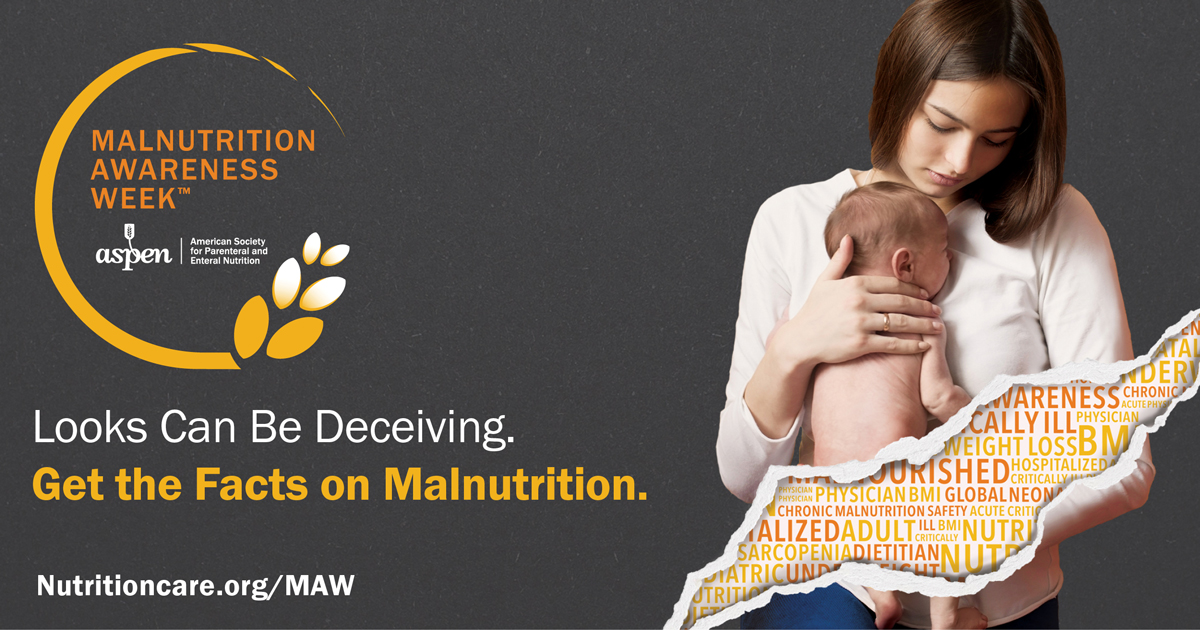FIVE WARNING SIGNS THAT YOUR CHILD IS MALNOURISHED
Published by ASPEN on Sep 24, 2018
Proper nutrition is vital to your child’s health, growth, and development. When your child isn’t eating or getting enough calories and the proper nutrients, there can be trouble ahead. Malnutrition weakens the immune system, opens the door to infections and delays healing. Here are five warning signs that you should look for in your children. If you spot any of them, talk with a healthcare professional about your concerns.
1. Weight Loss, Slow Weight Gain, or Underweight
Children gain weight at different rates. If your child is having difficulty gaining weight or is losing weight, it’s time to talk to their doctor. Simply looking at your child is not enough to assess for malnutrition. A child who is overweight could also be malnourished.
2. Not Growing Longer or Taller
Every child is different, and your child should be maintaining his or her own rate of growth. If your child is not outgrowing clothes, this could be a sign of malnutrition.
3. Eating Less Than Usual
Watch how your child eats during mealtime. If they only nibble or take just a few bites before pushing food away, they may be at risk for becoming malnourished. If a favorite food has no appeal or at mealtime you are met with “I’m not hungry,” it’s time to investigate.
4. Not Eating Well Due to Stomach Problems
If your child experiences stomach problems, it can be difficult for them to eat well. If they say they can’t eat at all, consult a physician right away.
5. Less Active or Less Playful
Children are growing and learning new things each day. If your child has a lower activity level than normal, or is sleeping more than usual, talk with a healthcare provider.
Download a poster illustrating these warning signs at the ASPEN Malnutrition Solution Center at NutritionCare.org/Malnutrition. You can also view a video on how to talk to healthcare professionals about your child’s nutrition.
Every September, ASPEN hosts Malnutrition Awareness Week™ to increase awareness of malnutrition, offer education on its signs and treatment, and drive progress toward early nutrition intervention. This year, it’s on September 24-28. Please visit NutritionCare.org/MAW to learn more.
